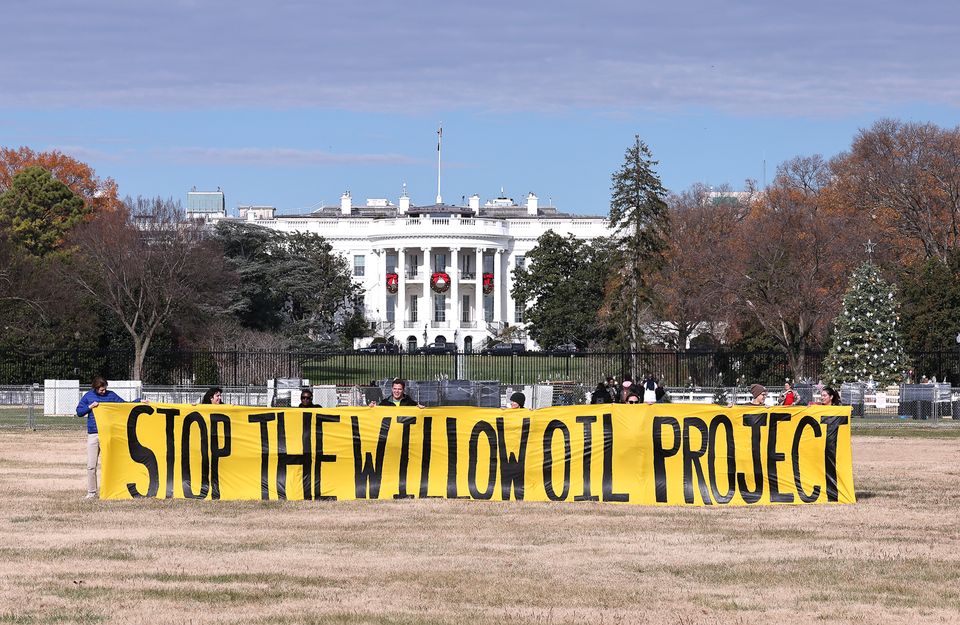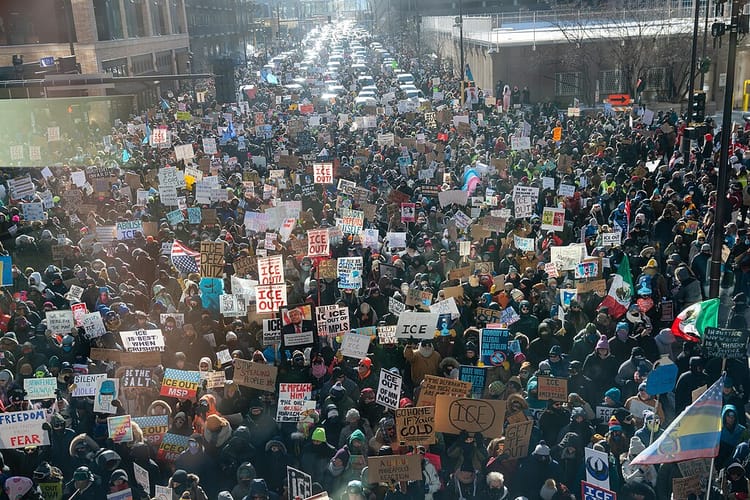Solving the Climate Problem, One Barrel of Oil at a Time

Last week I wrote about the limits of market-based solutions to climate, and this week here comes the U.S. government with a terrific example: its approval of ConocoPhillips’ Willow project in Alaska. The project's millions of barrels of oil would release 9.2 million metric tons of CO2 per, wiping out any emissions reductions delivered by the administration's public lands' renewable projects by 2030.
A video of VP Kamala Harris' appearance on Late Night with Stephen Colbert has been circulating on social media. The VP's nonsensical answer to concerns about the climate impact of Willow is worthy of all the mockery its receiving, but it's not much different than the Democrats' approach to climate in general: anything is fine, so long as we add enough solar panels.
That is not how emissions work. Thinking you can add solar panels to the grid to offset fossil fuel emissions is exactly the same as thinking a carbon offset reduces emissions. The accounting moves around, emissions might get slightly reduced on the whole, but the problem remains the same. Adding renewable energy while also adding fossil fuels cancels out whatever emissions reductions the renewables might deliver. Not to mention the fact that throwing any energy tech at the problem without tackling our unnecessarily high energy consumption is unlikely to deliver meaningful emissions reductions.
There is no way to effectively tackle the climate crisis without reducing the extraction and refining of fossil fuels. But the Biden administration has been hesitant to do anything that would address this, opting for spending bills like the IRA rather than legislation that would require emissions reductions. It's a classic neoliberal approach: if there's an equal or greater amount of money to be made in renewables, fossil fuel companies will just transition, no regulation required. Except that's not how the industry has ever worked. When Americans got good at conserving energy in the 1970s, the industry actively looked for ways to increase consumption as supply increased in the 1980s. When the bottom fell out of natural gas prices due to the fracking boom, fracking companies looked for new markets (especially petrochemicals and plastics). As Global North countries have shown a lack of interest in single-use disposable plastic, the production of the material has actually increased. 100 years ago, energy was a demand-driven industry, and in some parts of the world it still is, but in most of the world it is supply driven; it's a product looking for a market, an industry that spends billions to manufacture demand and ensure it never drops. The idea that it will suddenly start responding to demand signals now is ridiculous.
And at this point, it's hard to believe the Biden Administration, or Democratic leadership in general, isn't fully aware of that fact. The Biden administration's tendency to talk out both sides of its mouth on climate, its apparent lack of understanding of how the atmosphere works and how little it is impacted by politicking, seems like nothing more than political theater. It's the government's version of ExxonMobil's algae biofuels campaigns or BP's Beyond Petroleum or Chevron's Black Lives Matter Twitter square: empty, meaningless, and done solely to mislead.
Must-read climate stories this week
- How Big of a Climate Betrayal Is the Willow Project? (David Wallace-Wells, The New York Times)
- Study: An Economist's Case for Restrictive Supply Side Policy (Mark Paul and Lina Moe, Climate + Community Project)
- Big Oil Firms Touted Biofuels: Now All Have Pulled Funding (yours truly, The Guardian)
- What if climate change meant not doom — but abundance? (Rebecca Solnit, The Washington Post)
- The EU Is Cracking Down on Plastic. Will Others Follow? (Olivia Rudgard, Bloomberg)
- System Reboot (Orion)





